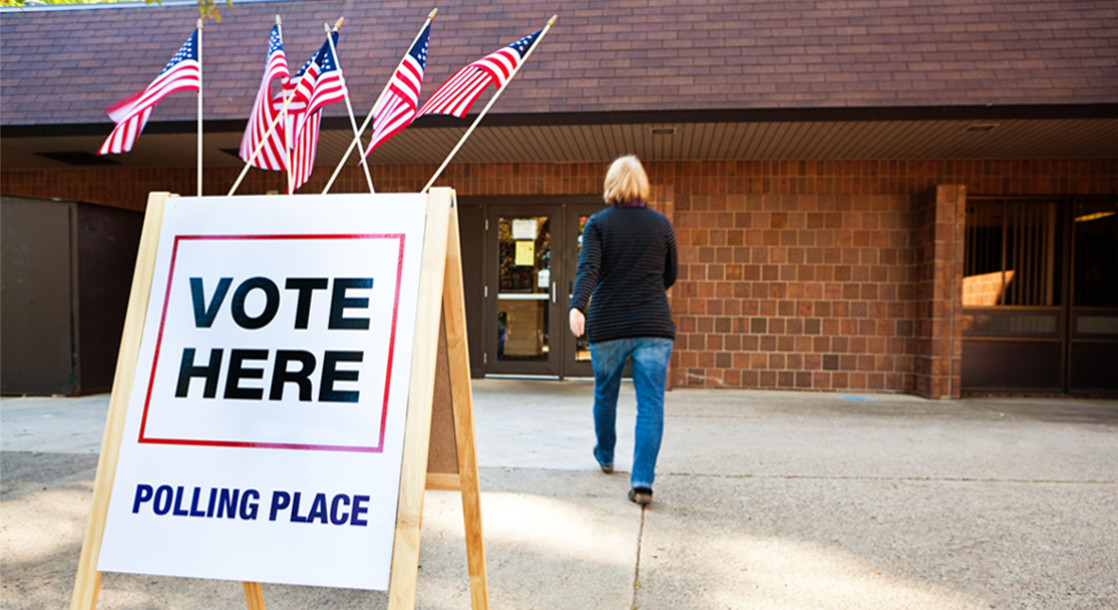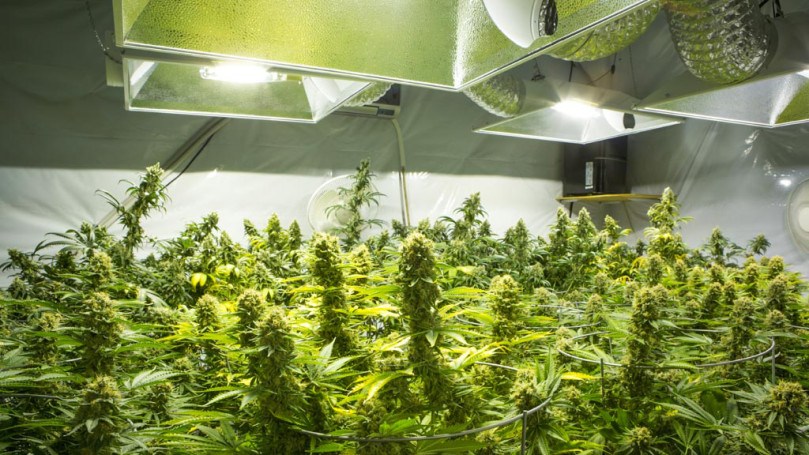Next week's midterm elections (see our voter guide here) will give Americans a chance to shake up the leadership of their towns, states, and country, and recent polls suggest that cannabis reform will be one of the issues expected to win big this year. A Democratic win in Congress could allow progressive lawmakers to finally advance bills to overturn the federal prohibition of cannabis, while four states are offering voters a chance to legalize medical or recreational marijuana.
Some candidates in surprising places are embracing cannabis reform: a Democrat running for attorney general of Arkansas has promised to fight for the rights of medical marijuana users who want to own guns (currently illegal under federal law). We know we’ll be anxiously waiting for voting results on Election Day.
In other news, Swiss scientists have discovered that liverwort moss contains a cannabinoid that could have many of the same medical benefits as THC, without the high. Meanwhile in Canada, just two weeks after legalization, the Great White North is still struggling with weed shortages, and several Asian countries are threatening to punish their citizens if they’re caught smoking pot overseas.
Cannabis Ballot Measures Likely to Succeed, Surveys Say
Cannabis legalization measures coming up for a vote across four states next week have a good shot at success, according to recent polls. In Michigan, voters will weigh in on Proposal 1, which aims to legalize the cultivation, use, and sale of pot for adults over 21. One recent poll found that 55% of respondents said they would vote yes, with only 41% opposed, and a second poll found even higher support, with 58% in favor and 37% opposed. Support for Measure 3 in North Dakota — which would allow adults to grow and possess unlimited quantities of weed and seal the records of all nonviolent former pot offenders — is a little more narrow, but still a majority at 51%, with 36% opposed.
In Utah, polls report that 51% of voters are in favor of a proposal to create a comprehensive medical cannabis law, but support has been dwindling ever since state lawmakers preemptively proposed a “compromise” bill to create a more restrictive program. In Missouri, voters are faced with three competing initiatives — two constitutional amendments and one statute — each of which has its own take on how the Show-Me State should legalize medical marijuana. The results of this election are likely to sow confusion, because the state has no guidance on what to do if an amendment and a competing law are both approved.
Several Wisconsin cities and counties are including advisory questions allowing voters to express their support or opposition to legalization on their local ballots. These advisory questions are non-binding, and will not directly change state law, but are expected to bring a larger number of liberal voters to the polls this year.
Support for cannabis reform is also at a historic high nationwide, with 66% of all Americans in favor of full legalization, according to a recent Gallup survey. While support from traditionally pot-friendly groups like Millennials and Democrats remains strong (78% and 75% respectively), the survey also found majority support among Republicans (53%) and — for the first time ever — Americans aged 55 or older (59%). "The train has left the station," Rep. Earl Blumenauer (D-OR), champion of numerous cannabis reform bills, told NBC News. "I see all the pieces coming together… It's the same arc we saw two generations ago with the prohibitions of alcohol."
NAACP Joins Anti-Cannabis Group in Opposing Michigan Legalization Measure
As Election Day draws near, anti-cannabis groups are working overtime to erode the majority support that legalization measures have attracted. In Michigan, the NAACP’s Detroit branch just made a surprise announcement encouraging voters to just say no to Proposal 1. While most cannabis advocates support legalization as a means to end the disproportionate enforcement of pot prohibition laws against communities of color, the NAACP in Michigan is arguing that legal weed would increase crime while posing a risk to public health.
"This ballot initiative adds another layer to the systematic racism that has held our communities of color — particularly African Americans — in bondage for hundreds of years," said Kamilia Landrum, deputy director of the NAACP’s Detroit chapter. Kevin Sabet, president of Smart Approaches to Marijuana, which is spearheading the opposition to Michigan’s ballot measure, was quick to jump on the bandwagon. "If you want rich white guys to sell pot gummy bears in your community, you should vote for this initiative," said Sabet.
Utah Lawmaker Publicly Tries Pot Ahead of Ballot Measure, While Debate Over Compromise Bill Rages On
Support for Proposition 2, the ballot measure to create a comprehensive medical marijuana program in Utah, has been declining ever since lawmakers announced a controversial new bill that would create a more restrictive program, regardless of whether or not the ballot measure passes. Former state Senator Steve Urquhart told the Associated Press that the compromise deal was an “electioneering ploy… intended to suppress voter turnout [and] to confuse the voters,” but state House Speaker Greg Hughes countered that the bill was not intended to derail support. “If Proposition 2 were to fail, we’d still want to move forward with a model to provide medical cannabis to patients who need it,” he said to the Salt Lake Tribune.
Meanwhile, state Sen. Jim Dabakis came up with his own unique way to show his support for medical marijuana — filming himself trying pot for the first time. Dabakis traveled to Las Vegas, where he legally purchased and ate some edibles before checking out a Cirque Du Soleil performance.
In a follow-up video posted a few days later, the politician explained that this chill experience reassured him of the safety of cannabis. “I felt a little high, a little okay, but it didn’t change my life,” he said, TIME reports. “Everybody, mellow out. Recognize that this is nothing to be afraid of. The people that are terrified by it seem to be the people who never tried it.”
Arkansas Candidate for Attorney General Pledges to Sue the Feds to Allow Medical Cannabis Users to Own Guns
Although cannabis reform advocates and gun rights activists are often on opposite sides of the political spectrum, the issue of firearm ownership among medical marijuana users is bringing these two groups together. Federal law prohibits firearms from being sold to any individual who has ever used a Schedule I drug, blocking thousands of state-legal MMJ patients and recreational consumers from exercising their constitutional right to bear arms. Police in Hawaii, Illinois, and Delaware have moved to take medical marijuana users' guns away, but have ended up backing down in most of these situations.
Last week, a candidate for attorney general of Arkansas announced that he was willing to force the feds to resolve this issue once and for all. Democrat Mike Lee promised to sue the federal government to force them to reschedule cannabis, which would end the federal restriction preventing state-legal pot users from owning firearms. Lee also promised to push for a law to prohibit state agencies from sharing medical marijuana patient data with federal law enforcement, to prevent this information from being an impediment to gun ownership.
Scientists Discover Liverwort Moss Contains THC-Like Compounds
Liverwort — a type of moss native to Japan, New Zealand, and Costa Rica — contains a cannabinoid compound that could have many of the same medical benefits as THC, a new study published in the journal Science Advances reports. In the mid-90s, researchers discovered that perrottetinene (PET), a compound present in liverwort, closely resembles THC. This year, researchers at the University of Bern in Switzerland took a closer look at PET, injecting over 100 mice with the compound to observe its effects.
The compound “differs from THC in a way that could be much less problematic in terms of adverse central effects,” Jürg Gertsch, neuroscientist and lead author of the study, explained to the L.A. Times. The researchers found that PET has a much weaker psychoactive effect than THC, but is actually more effective at relieving pain and reducing inflammation in the brain. Further research will be necessary to identify the potential medical uses of PET on humans, but since the plant is entirely legal, the restrictions that hinder medical research into cannabis will not apply.
Canada Still Struggling With Supply Shortages, While Asian Countries Threaten to Arrest Canna-Tourists
Just two weeks after legalizing recreational cannabis, Canada is already running out of legal weed. Ontario's online cannabis store – the province's only legal source of pot for now – received 100,000 orders in the first 24 hours after legalization, and Quebec's stores received 140,000 orders in the first week of sales. The country's supply network was woefully unprepared for this massive and immediate demand, and many retail shops are already reporting that their shelves are bare.
There are currently only 132 licensed cannabis producers throughout the entire country, 78 of which are licensed for sales. Thousands of additional businesses have filed applications for commercial licenses, but the process can take up to a year to complete. Until more producers enter the market, insiders expect that legal retailers will continue to suffer from supply constraints. Health Canada has hired an additional 300 staff members to evaluate applications, but advised that they would still take their time to properly research each applicant.
Tourists from every corner of the world are expected to flock to Canada for their first taste of legal pot, but residents of some Asian countries may find themselves in hot water for indulging in the newly legal activity. Authorities in Singapore, Japan, and South Korea are warning their citizens that traveling to a canna-legal country does not exempt them from their home country’s drug laws. Rather than simply banning the use of the drugs within their borders, these countries' laws specifically prohibit their citizens from using drugs, and therefore a citizen who smokes kush in Canada is considered just as guilty as someone who smokes weed on their home turf.
Last week, the Singapore Central Narcotics Bureau announced that border authorities would attempt to determine whether returning tourists had used drugs while abroad. Anyone found guilty of such transgressions would face the same penalty as someone caught smoking pot in Singapore — a fine of up to $20,000 and up to 10 years in prison. In South Korea, officials regularly attempt to prosecute returning citizens who they suspect have used drugs while overseas. Anyone found guilty of these charges can face up to 5 years in jail, or a fine equivalent to $44,000, for even taking one puff off a joint. Japanese authorities are slightly more relaxed on the issue, and have advised their citizens that while using pot in another country remains illegal, it is unlikely that they would be able to pursue charges against someone who smoked up abroad.
Next time we’ll check out the latest action on Election Day, along with the week’s other major developments in marijuana. In the fight for cannabis reform, knowledge is power, so stay tuned!











